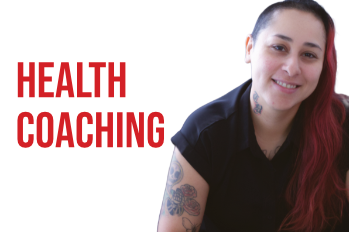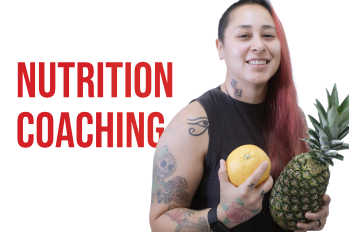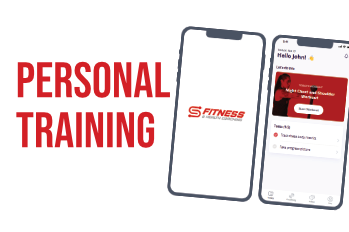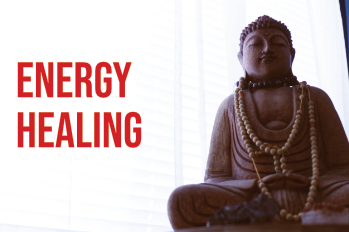Let’s start off like this…t’s not just about calories, it’s about how your body functions, feels, and fuels itself. So let’s talk about an important macro called “Protein”!
When most people think about weight loss, they focus on cutting calories, doing cardio, or skipping meals. But what often gets overlooked is something foundational and important, PROTEIN.
Protein isn’t just a “gym bro” thing. It’s a human body thing. Whether you’re looking to lose body fat, build strength, support your hormones, or just have more energy in your day, protein is a key player for all of that.
Let’s break down why protein matters so much especially if you’re trying to lose weight the sustainable way, which is the best holistic approach. Let me break it down into 4 parts below.
1. It Helps You Stay Full, Longer
Ever feel hungry 30 minutes after eating a snack? Yup! Well, that’s usually a sign that your meal lacked protein.
Protein slows down digestion, meaning it takes longer to move through your stomach compared to carbs or fat. This helps keep you full for longer periods and curbs the urge to snack every few hours or overeat later during a meal with a labrador brain.
So what happens in your body when you eat enough protein throughout the day?
- Protein lowers levels of ghrelin, the hunger hormone.
- At the same time, it increases levels of peptide YY and GLP-1, two hormones that signal fullness to your brain.
- That hormone shift means your body is literally telling your brain, “We’re good, no need for more food right now.”
This kind of appetite control (guess what? NO DIET PILL OR INJECTIONS NEEDED) is crucial during a fat loss phase. You’re more likely to stick to your plan when you’re not constantly fighting off cravings or blood sugar dips.
2. It Helps You Lose Fat Without Losing Muscle
Weight loss isn’t always fat loss. When you cut calories, your body will burn whatever it can for energy and fucked up part is that it sometimes includes your muscle tissue.
This is called muscle catabolism, and it usually happens when:
- You’re not eating enough protein
- You’re not strength training
- You’re losing weight too fast
Losing muscle isn’t just about looking “less toned.” Muscle is metabolically active and it helps you burn more calories at rest, protects your joints, supports your posture, and keeps you strong as you age. And technically, you may even live longer, the more muscle you can pack on.
How to prevent muscle loss while losing weight:
- Eat enough protein (more on how much below)
- Strength train regularly
- Don’t crash diet, stop starving yourself
What are some signs to look out for and that may be signaling muscle loss?
- You feel weaker week to week
- You’re losing weight, but not inches
- Your body feels soft or “deflated”
- You’re constantly fatigued or recovering way too slowly
Getting enough protein gives your body the raw materials it needs to preserve and rebuild muscle tissue while you’re in a calorie deficit. SO YEAH, EAT THAT PROTEIN!
3. It isn’t MAGIC BUT it supports your Metabolism (Thanks to TEF)
Protein doesn’t just sit in your stomach, your body actually has to work HARD to digest it. That effort burns calories, and it’s called the Thermic Effect of Food (TEF).
Here’s how TEF breaks down by macronutrient:
- Protein: Burns 20–30% of its calories during digestion
- Carbs: Burns 5–10%
- Fat: Burns only 0–3%
So let’s say you eat 100 calories of protein then your body might use 20–30 of those calories just to break it down, absorb it, and process it. That’s a natural metabolic boost just from eating smarter.
This doesn’t mean protein is MAGIC, but it does make your metabolism work a bit harder in your favor. Every little bit counts, especially when you’re trying to lean out.
4. Amazing for Recovery and Energy
Protein isn’t just for bodybuilders or athletes. It’s for anyone who uses their body especially in training.
When you strength train (which you should during any weight loss phase), you create tiny tears in your muscle fibers. This is totally normal and it’s how muscle grows stronger. But in order for your body to repair those tears and rebuild stronger muscle tissue, it needs amino acids… the building blocks of protein.
Here’s how protein supports your recovery and energy:
- Rebuilds damaged muscle tissue
- Reduces post-workout soreness
- Supports enzyme production (which helps your body create energy)
- Prevents fatigue and injury from under-recovery
Skipping protein after workouts can lead to slower recovery, more soreness, and even fatigue that drags into the next day. But getting enough can help you bounce back faster, feel energized, and make real progress. I will also say that eating protein at every meal is a MUST.
So, How Much Protein Do You Actually Need?
This depends on your weight, activity level, and goals, but here’s a solid starting point:
0.7 to 1 gram of protein per pound of goal body weight.
So if your goal weight is 150 lbs, you’re looking at 105–150 grams of protein a day. Spread that out over 3–5 meals and snacks to make it easier on digestion and blood sugar.
Be Sustainable, Eat That Protein
If you’re trying to lose weight in a sustainable way, protein is your non-negotiable.
It helps you stay full, protect your muscles, fire up your metabolism, and feel strong, inside and out.
This isn’t about dieting harder. It’s about fueling smarter.
And if you’re not sure how to build meals around protein or how to apply this to your daily life, you don’t have to figure it out alone. I help women and anyone in the LGBTQ+ community simplify nutrition and build real strength every day without tracking forever or cutting all the foods they love. I genuinely would love to help you! Learn more about my breakthrough session here to chat as soon as tomorrow!












